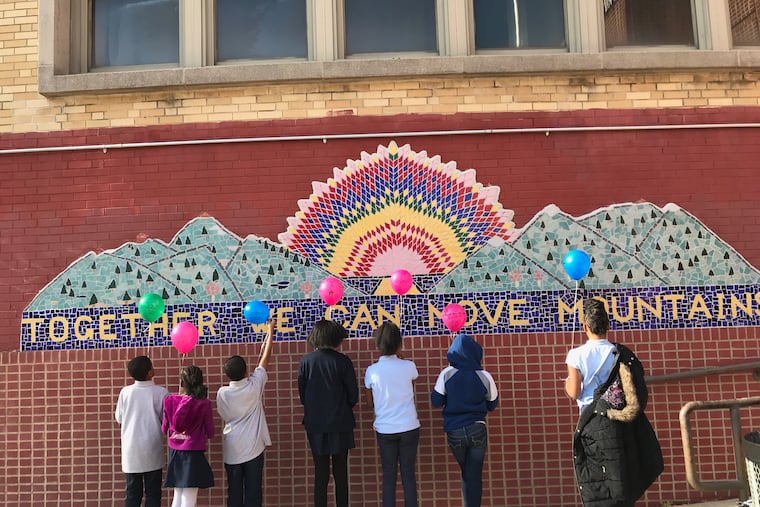Philly’s gun violence can traumatize youths. Here are ways to support them. | Opinion
Guns killed at least five Philadelphia children in the past month. To grapple with those losses, other children here may need help.

Our city is facing a crisis. Homicides are up 43% since 2013 and at a yearly high that we have not seen since 2007. In the last month, gun violence has taken the lives of at least five Philadelphia children, all younger than 12. So many families in our city are grieving and have no idea where to turn. Others are wondering when it will happen to their friend, neighbor, or child.
Community members are calling for action from government officials, places of worship, and mental health professionals. The city is asking, what do we do?
I do not have the answers on how to stop gun violence. But as executive director of Uplift Center for Grieving Children, I do oversee a grief center for children and families that often provides the crisis and postcrisis support groups offered at city schools and other community venues. Our team is out there working with other agencies and members of the community helping to lessen the harm perpetrated by violence.
Last year, Uplift served 1,700 children in groups, and approximately 30% of those children were grieving a loved one who died by homicide. As our officials work on solutions to this crisis, we need to stand up for our city’s youth and give them the support they need.
» READ MORE: Boy, 11, fatally shot in West Philadelphia; brother in custody
While we cannot provide a quick solution to this crisis, there are practical tips that can help those dealing with these traumatic losses, and the adults trying to help our youth in such a difficult time:
1. Allow youths to voice their thoughts and feelings in an honest and open way. You can’t completely alleviate their fears and take away what has happened. But you can give them space to share and listen without judgment, which will help youths process their feelings.
2. Help youths identify other safe people with whom they can talk. It is best to have at least one adult and one peer they trust.
3. Identify ways youths can effect change in their community. In the face of inexplicable loss, feelings of helplessness can set in. Helping youths find ways to use their pain to drive change for themselves and their community — like joining an organization like Youth Action, volunteering with an antiviolence organization like Ceasefire, or offering to help out their block captain — can empower youths and be a source of healing.
4. Answer questions honestly. Our natural inclination is to fix things for our kids and protect them from information that might bring pain and sadness. Keep in mind that it is OK to acknowledge your own feelings about tragedies affecting the Philadelphia community. You do not have to have all the answers but providing accurate and age-appropriate information is important. If youths do not have all of the facts, they will often fill in the blanks themselves which can cause more fear and trauma.
5. At the same time, try to limit exposure to television and social media platforms that are reporting about the violence. Repeatedly seeing and hearing about the killing of children in Philadelphia can be very traumatizing to youths and adults alike. While it may be impossible to turn off social media, talk with youths about limiting their exposure to news and reports of the violence.
6. Create a safety plan with youths if they are questioning their personal safety. The world may seem exceptionally frightening right now for them and taking steps to increase their sense of safety may be helpful.
7. Seek additional support if necessary. Living in a state of fear and uncertainty is difficult and can be traumatic. Reach out to a mental health professional if you are concerned about emotional or behavioral changes in your child or if you need help yourself.
Darcy Walker Krause is executive director of Uplift Center for Grieving Children in Philadelphia and the secretary and board member for the National Alliance for Grieving Children. For more information on how to get support from Uplift or tip sheets to support grieving youths, visit www.upliftphilly.org.